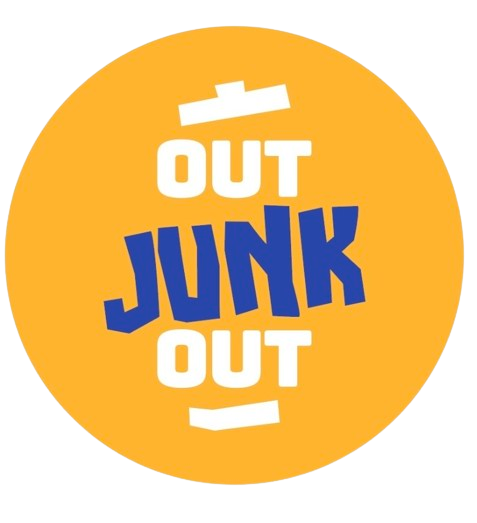Learn how to make your trash removal process more eco-friendly.
In our fast-paced world, convenience often overshadows sustainability, making eco-friendly trash removal a critical necessity rather than just a trend. As our planet faces increasing environmental challenges, adopting eco-friendly waste management practices is essential for protecting our natural resources and ensuring a cleaner, healthier future for coming generations. This comprehensive guide is designed to equip you with the knowledge and tools needed to embrace eco-friendly trash removal. From understanding the significant impact of sustainable practices to practical steps for integrating them into your daily routine, this guide provides a clear path toward making a positive environmental difference.
Why Eco-Friendly Trash Removal Matters
Eco-friendly trash removal is crucial in today’s world because traditional waste management methods often lead to significant environmental harm. Landfills, for instance, can leach toxins into soil and water, while incineration processes may release harmful pollutants into the air. These practices not only contribute to pollution but also exacerbate climate change and degrade natural resources.
By adopting eco-friendly trash removal practices, we can mitigate these negative impacts. Sustainable methods such as recycling, composting, and reducing waste help minimize landfill use and lower carbon emissions. These approaches also promote the conservation of resources and support a circular economy, where materials are reused and repurposed rather than discarded. Embracing these practices is essential for a healthier planet and a more sustainable future.
Composting and Recycling: Key to Effective Waste Management
Composting and recycling are essential components of effective waste management that significantly reduce the environmental impact of our waste. Composting turns organic waste, such as food scraps and yard trimmings, into nutrient-rich soil, which reduces landfill use and enhances soil health. This process not only diverts waste from landfills but also supports sustainable gardening and agriculture by providing a natural fertilizer.
Recycling, on the other hand, involves processing used materials—like paper, glass, plastics, and metals—into new products. This reduces the need for raw materials, conserves natural resources, and lowers energy consumption. Together, composting and recycling help close the loop in waste management, promoting a circular economy and reducing overall environmental impact.

Understanding the Basics
The Three Rs: Reduce, Reuse, Recycle
The Three Rs—Reduce, Reuse, Recycle—form the cornerstone of effective waste management. By reducing consumption, reusing items, and recycling materials, we can significantly lower waste, conserve resources, and minimize environmental impact, creating a more sustainable lifestyle.
Composting: Turning Waste into Nutrient-Rich Soil
Composting transforms organic waste like food scraps and yard trimmings into valuable, nutrient-rich soil. This process not only reduces landfill waste but also enhances soil health, promotes plant growth, and supports sustainable gardening, contributing to a healthier environment.
Boost Your Recycling Game with These Eco-Friendly Strategies
Boosting your recycling game involves adopting eco-friendly strategies that enhance efficiency and effectiveness. Start by setting up a well-organized recycling station at home or work, with clearly labeled bins for different materials like paper, glass, plastics, and metals. Ensure that all participants are educated about proper sorting to minimize contamination, which can lead to recyclable materials being discarded.
In addition to organization, prioritize reducing and reusing before recycling. Choose products with minimal packaging and repurpose items whenever possible. Stay informed about local recycling guidelines and updates, as practices and acceptable materials can change. By integrating these strategies, you can significantly increase your recycling efforts, contribute to resource conservation, and support a more sustainable environment.
Implementing Eco-Friendly Trash Removal in Your Life
Now that you understand the basics, let’s explore practical steps you can take to make your trash removal process more eco-friendly.
- Start with a Waste Audit: Conducting a waste audit helps identify what you throw away and find opportunities to reduce waste. Track and analyze your waste to improve recycling habits and focus on areas where you can cut down.
- Set Up a Recycling Station: Create a designated recycling station with separate bins for paper, plastics, glass, and metals. Label each bin clearly and ensure everyone understands what materials belong where, making recycling more organized and effective.
- Adopt Composting Practices: Start composting by using a bin for organic waste like food scraps and yard clippings. Composting reduces landfill waste and produces nutrient-rich soil for gardening, enhancing soil health and promoting sustainability.
- Reduce Single-Use Plastics: Minimize single-use plastics by opting for reusable items like bags, bottles, and containers. Reducing plastic consumption helps lower waste, decreases environmental pollution, and supports a more sustainable lifestyle.
- Make Informed Purchasing Decisions: Choose products with minimal or recyclable packaging and support brands committed to sustainability. Informed purchasing reduces waste and promotes responsible consumption, contributing to a healthier environment and a more sustainable future.
The Role of Community and Policy
Community and policy play pivotal roles in advancing eco-friendly trash removal practices. Community initiatives, such as local recycling programs and environmental education campaigns, help raise awareness and engage residents in sustainable waste management. By participating in or supporting these programs, individuals contribute to reducing landfill waste and promoting recycling efforts, fostering a culture of environmental responsibility.
On a broader scale, policy changes are crucial for driving systemic improvements in waste management. Advocating for and supporting legislation that encourages recycling, composting, and reduced plastic use can lead to more comprehensive and effective waste management strategies. Collaborative efforts between communities and policymakers are essential for creating a sustainable future and addressing global environmental challenges.
Challenges and Solutions
Implementing eco-friendly trash removal often presents several challenges, including a lack of awareness, inconsistent recycling programs, and contamination of recyclables. Many people are unaware of proper recycling and composting practices, which can lead to ineffective waste management. Inconsistent recycling services across different regions can also make it difficult for residents to engage in sustainable practices consistently. Additionally, contamination from non-recyclable items can result in entire batches of recyclables being rejected.
To address these issues, education and clear guidelines are essential. Increasing public awareness through campaigns and providing straightforward recycling instructions can significantly improve participation and effectiveness. Advocating for improved recycling infrastructure and developing robust contamination prevention measures will also enhance overall waste management efficiency and sustainability.
Practical Advice for Reducing Waste and Promoting Recycling
Reducing waste and promoting recycling starts with making informed choices and adopting simple, effective practices. Begin by minimizing waste generation through mindful consumption. Opt for products with minimal packaging, and choose reusable items such as cloth bags, water bottles, and containers over single-use alternatives. Additionally, be proactive about repairing items rather than discarding them, and donate or sell items you no longer need to extend their lifecycle.
Promoting recycling involves setting up a clear and accessible recycling system at home or work. Ensure that materials are sorted correctly and clean before recycling. Educate yourself and others about local recycling guidelines and participate in community recycling programs. By integrating these practices, you can significantly reduce waste and contribute to a more sustainable future.
Conclusion
Eco-friendly trash removal is crucial for a sustainable future. Embracing the principles of reducing, reusing, and recycling, along with practices like composting, can significantly lessen environmental impact. Out Junk Out in McLean offers tailored solutions and expert support for managing waste responsibly. For assistance with eco-friendly practices and to contribute to a greener, cleaner McLean, contact Out Junk Out today. Join in the effort to make a positive environmental impact and foster a more sustainable community.


